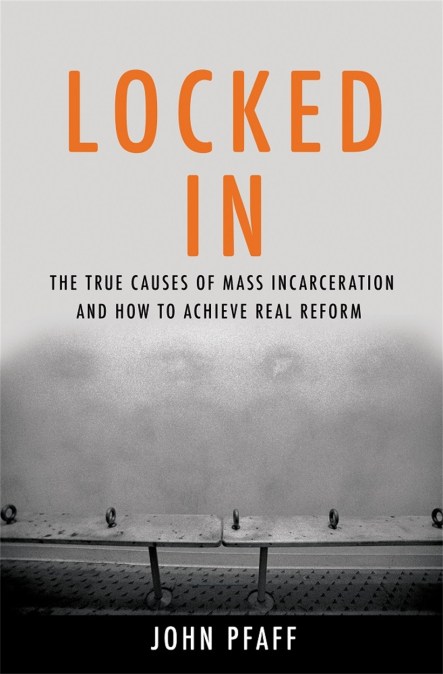Locked In
On sale
4th May 2017
Price: £25
Genre
Society & Social Sciences / Social Services & Welfare, Criminology / Crime & Criminology / Penology & Punishment / Prisons
Selected:
Hardcover / ISBN-13: 9780465096916
A groundbreaking examination of our system of imprisonment, revealing the true causes of mass incarceration as well as the best path to reform
In the 1970s, the United States had an incarceration rate comparable to those of other liberal democracies–and that rate had held steady for over 100 years. Yet today, though the US is home to only about 5 percent of the world’s population, we hold nearly one quarter of its prisoners. Mass incarceration is now widely considered one of the biggest social and political crises of our age. How did we get to this point?
Locked In is a revelatory investigation into the root causes of mass incarceration by one of the most exciting scholars in the country. Having spent fifteen years studying the data on imprisonment, John Pfaff takes apart the reigning consensus created by Michelle Alexander and other reformers, revealing that the most widely accepted explanations–the failed War on Drugs, draconian sentencing laws, an increasing reliance on private prisons–tell us much less than we think. Pfaff urges us to look at other factors instead, including a major shift in prosecutor behavior that occurred in the mid-1990s, when prosecutors began bringing felony charges against arrestees about twice as often as they had before. He describes a fractured criminal justice system, in which counties don’t pay for the people they send to state prisons, and in which white suburbs set law and order agendas for more-heavily minority cities. And he shows that if we hope to significantly reduce prison populations, we have no choice but to think differently about how to deal with people convicted of violent crimes–and why some people are violent in the first place.
An authoritative, clear-eyed account of a national catastrophe, Locked In transforms our understanding of what ails the American system of punishment and ultimately forces us to reconsider how we can build a more equitable and humane society.
In the 1970s, the United States had an incarceration rate comparable to those of other liberal democracies–and that rate had held steady for over 100 years. Yet today, though the US is home to only about 5 percent of the world’s population, we hold nearly one quarter of its prisoners. Mass incarceration is now widely considered one of the biggest social and political crises of our age. How did we get to this point?
Locked In is a revelatory investigation into the root causes of mass incarceration by one of the most exciting scholars in the country. Having spent fifteen years studying the data on imprisonment, John Pfaff takes apart the reigning consensus created by Michelle Alexander and other reformers, revealing that the most widely accepted explanations–the failed War on Drugs, draconian sentencing laws, an increasing reliance on private prisons–tell us much less than we think. Pfaff urges us to look at other factors instead, including a major shift in prosecutor behavior that occurred in the mid-1990s, when prosecutors began bringing felony charges against arrestees about twice as often as they had before. He describes a fractured criminal justice system, in which counties don’t pay for the people they send to state prisons, and in which white suburbs set law and order agendas for more-heavily minority cities. And he shows that if we hope to significantly reduce prison populations, we have no choice but to think differently about how to deal with people convicted of violent crimes–and why some people are violent in the first place.
An authoritative, clear-eyed account of a national catastrophe, Locked In transforms our understanding of what ails the American system of punishment and ultimately forces us to reconsider how we can build a more equitable and humane society.
Newsletter Signup
By clicking ‘Sign Up,’ I acknowledge that I have read and agree to Hachette Book Group’s Privacy Policy and Terms of Use

